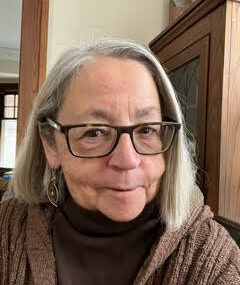Member Spotlight: Jennifer Upton

How did you land your first book ghostwriting project?
My first project was for an agency who matched writers with clients looking to write their memoirs. It would be a trial by fire. After reading some samples of my writing, the managing editor and I met for coffee. He slid a purple notebook stuffed to the brim across the table in my direction and said, “We don’t know what to do with this. Maybe you can help.” They had a client whose first language was not English. They needed a writer to take his notebook full of disjointed notes, random memories and poems and turn them into a grammatically correct, engaging memoir. By the time I came to the project, three other writers had already looked at the material and walked away, each at a loss as to how it might be fashioned into a coherent book. I jumped in headfirst, combining the pages in the notebook with new interview material. Together, we shaped it into a book over the next few months.
What has been your secret to building a steady stream of ghostwriting clients?
My first client was so pleased with the results of his book, he ordered 100 copies from the agency I was with at that time, and I immediately began receiving steady work from them. 5 years later, I left to strike out on my own, and I began finding clients through reaching out on social media, referrals from past clients and networking.
What do you wish clients understood about the ghostwriting process?
There are four important things I tell all new clients:
- This is your story. The time I spend with you is yours. The more detail you give me, the better. A ghostwriter must be able to capture their client’s voice and manifest their ideas. Where memoirs are concerned, a lot of people come to me with histories of trauma or other difficulties they have overcome in life and it is paramount they feel safe with me. We can always remove something between the first and second draft if you’re uncomfortable with it.
- The feedback process is critical. Receiving that first draft will feel overwhelming! My best advice is to read it twice. The first time, read it all the way through without making notes, just to get a feel for the overall piece. The second time, go back over it in detail and make notes on the things you’d like changed.
- Don’t sweat that stray comma! The first (or second) draft will not be perfect. Every book on every shelf in every bookstore has been edited and proofread by separate professional individuals with those skillsets.
- Holding the final product in your hand will make the journey worth it!
How would you describe your favorite type of project and client?
I love working with clients whose stories, whether fiction or non-fiction, take place against a wider historical backdrop in specific locations. The human experience is a universal one. History comes alive for future generations through the intimate stories of those who lived during important events. In fiction, creating a larger world for the characters to exist within helps to define them. Where would Batman be without Gotham City?
What are the best parts of this career?
The best part has been working with clients very different from myself. I’ve worked with people diverse ethnic backgrounds, from all different age groups, from countries all over the world. I also enjoy being able to explore a variety of different writing styles and genres.
How can people reach you?
Email me at jm.upton@yahoo.co.uk or visit my website https://www.jennuptonwriter.com and fill out the contact form.











